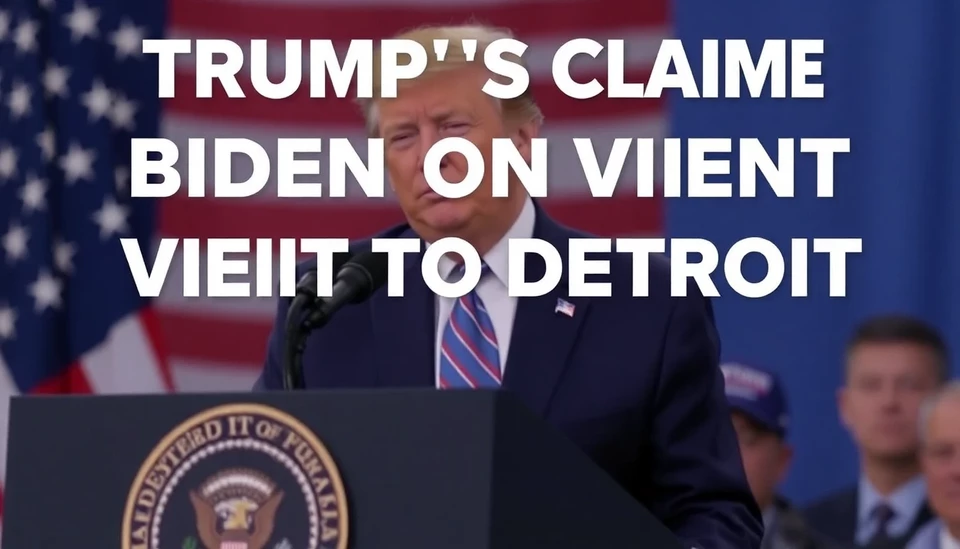
In a recent political discourse, former President Donald Trump made bold assertions regarding President Joe Biden's visit to Detroit, particularly focusing on the impact of Biden's policies on the automaker landscape. Trump's statements suggest a significant disconnect with the realities on the ground, prompting analysts to urge caution in accepting his claims without scrutiny.
During a rally, Trump criticized Biden for his approach to the automotive industry, implying that Biden's policies could be detrimental to American manufacturers. He highlighted Biden's push for electric vehicles and stringent environmental regulations as potential threats to traditional auto jobs. However, this narrative paints an incomplete picture of the complex circumstances faced by the industry.
Experts in automotive economics point out that the shift towards electric vehicles (EVs) is in fact a response to market demands and global competition. With major automotive companies investing billions into EV technology, the transformation is not merely a Biden administration initiative but a necessary evolution for the industry as a whole. Analysts indicate that without embracing this evolution, US automakers risk falling behind in an increasingly competitive global market.
Additionally, examining the current job market in Detroit and other manufacturing hubs reveals a more nuanced situation. While traditional jobs in the automotive sector are indeed changing, new opportunities are emerging as companies pivot to greener technologies. Industry insiders stress the importance of re-skilling workers to adapt to these changes, rather than regressing to outdated manufacturing practices, as Trump’s statements might imply.
Furthermore, it’s essential to consider the context of Biden’s visit to Detroit, which was intended to highlight his administration's investments in American manufacturing as part of a broader agenda to revive the economy through innovation and sustainability. The President's strategy includes support for workers during this transition, aiming to create a future where both traditional and electric vehicle sectors can coexist productively.
As the political season heats up, it is crucial for voters and the public to critically evaluate claims made by both political parties. Trump's remarks, while compelling as a rallying cry, overlook the multifaceted reality of an industry in transition. Misleading statements about job losses without acknowledgement of the industry's adaptive strategies could hinder public understanding of how best to support American workers in a changing landscape.
As this narrative continues to unfold, citizens should remain informed, demanding factual clarity from their leaders instead of simplistic interpretations of complex economic changes.
In conclusion, as we head toward the next election and dialogues around important national issues like the automotive industry arise, it becomes imperative to investigate the facts deeply and not take statements at face value. A well-informed electorate is essential for navigating the intricacies of contemporary economic and political challenges.
#Trump #Biden #Detroit #AutomotiveIndustry #ElectricVehicles #PoliticalAnalysis #JobMarket #Manufacturing #Economy #Sustainability
Author: John Harris




